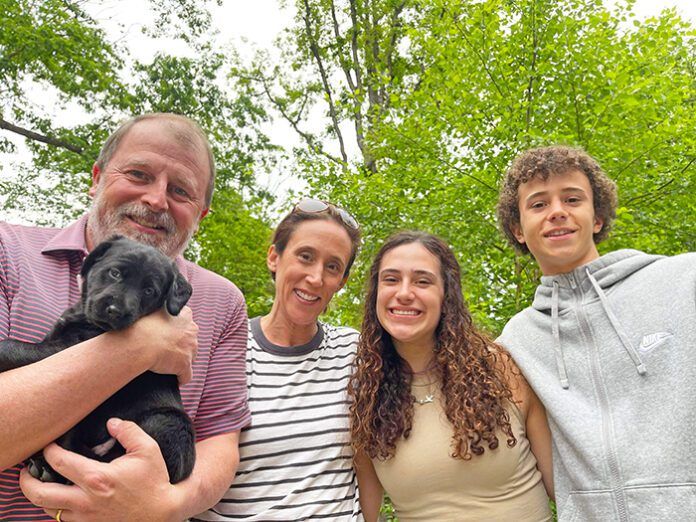It’s the most exciting moment for any dog lover: a new puppy is coming! Advance preparation will make your pup’s introduction to her new life easier for both of you.
Plan With Your Puppy Care Professionals
As soon as you start thinking about getting a puppy, find and engage your puppy care professionals:
- Veterinarian: If you don’t already have one, find one! A current veterinarian shortage means many veterinary clinics aren’t taking on new clients. Be sure they follow Fear-Free protocols, including allowing you to always stay with your pup during clinic visits.
- Trainer: Enroll in a puppy socialization class as soon as possible – and plan ahead, because classes may fill and force you onto a waiting list that causes your puppy to “age out” of the most beneficial socialization window. The American Veterinary Society of Veterinary Behaviorists says puppies can start puppy classes as early as 7-8 weeks of age, and that life-threatening risks of under-socialization far outweigh the very minimal risk of exposure to germs in a well-run puppy class. Find an experienced trainer who is a member of and/or certified by organizations that follow science-based, force-free philosophies.
- Walker/Sitter/Groomer: Be sure these professionals are bonded and insured, members of professional organizations, and also committed to force-free handling – especially because they’ll often be caring for your dog in your absence.
Puppy House Rules
Bringing your new pup home can be stressful for canines and humans alike. Agreeing on routines before the pup arrives and ensuring everyone follows them makes the transition easier for all. Consistency and predictability are very important for stress-reduction in all species. Here are some things to decide before the new pup sets paw in your home:
- Collar, leash, harness, a bed or two, crate, exercise pen, baby gates, a lot of toys, training treats, food and water bowls – all your supplies need to be in place before that bundle of puppy love walks through the door.
- What kind of food will you feed (do your research!)? Pups are usually fed three times a day; who will feed each meal? Where will she be fed?
- Where will your puppy sleep? We recommend nighttime confinement to a crate or exercise pen in someone’s bedroom, to minimize puppy stress and possible isolation or separation distress or anxiety. Same bedroom every night (consistency!) and that person is willing to get up at 2:00am when the pup needs to go out.
- Exercise, enrichment, and training. These are critically important to raising a mentally and physically healthy, well-mannered adult dog. Start now – waiting until the pup grows up is too late! Decide which family member(s) are responsible for seeing that these needs are taken care of daily.
Is everything in place? Got all your ducks in a row? Now go get that puppy and love her to pieces for the rest of your lives together!





